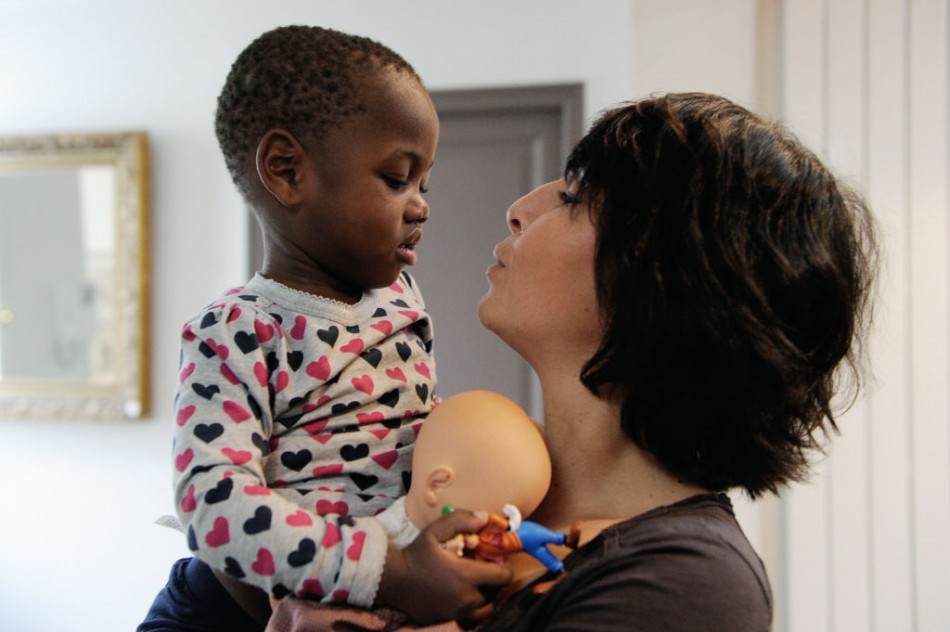When Do Babies Say Their First Word? A Month-by-Month Guide to Speech Development

A frequent inquiry among parents is when babies begin to talk. Like other developmental milestones, these aspects vary individually.
Early on, babies start forming the foundations of speech through sounds, syllables, and noises, evolving into words. By the first birthday, some may utter simple words like "dada," "mama," or "bye."
Speech Development in Babies
Before infants acquire language proficiency in a specific language like English or Spanish, they engage in babbling and cooing as they explore various sounds, a stage commonly referred to as baby talk.
The onset of a baby's first words is a pivotal milestone occurring within the initial three years of life, a period marked by rapid brain development.
The progression of your baby's speech development is influenced by both your "baby talk" skills and their cognitive advancement.
We collaborated with experts to delve into speech-related milestones, providing insights into what to observe as your little one starts expressing themselves through words.
In the initial months (Birth to 6 Months), babies listen and associate sounds with sources, progressing from cries to gurgles and vowel sounds.
From 4 to 6 months, babbling emerges with consonant and lip sounds, and babies begin focusing on familiar words.
Baby's Month-by-Month Speech Milestones
At 3 months, babies respond to voices, watch faces, and initiate "cooing," a joyful and repetitive vocalization.
By 6 months, babbling with diverse sounds, such as "ba-ba" or "da-da," begins. Babies respond to their names and express happiness or distress using tone.
After 9 months, babies comprehend basic words like "no" and "bye-bye" and exhibit a broader range of consonant sounds and tones.
From 12 to 18 months, babies typically utter simple words like "mama" and "da-da" while understanding and responding to short requests.
At 18 months, babies articulate several simple words, point to named objects, and imitate sounds but may omit word endings or beginnings.
By 3 years, toddlers convey whole thoughts in a few words, progressing to longer sentences.
From 4 to 5 years, extensive conversations, use of adjectives, and expressive vocabulary of around 2,500 words are expected.
Read Also: When Do Babies Roll Over? Safety Tips for New Parents
Parents' Role in Baby's Spech Development
Parents can aid language development through rhyming games, reading, and positive reinforcement. It's essential to monitor language progression and consult a healthcare provider if concerns arise, especially regarding issues like stuttering or lisping.
As children progress, limiting screen time and encouraging interactive learning remain crucial for language development. Parents can play a key role in facilitating language development by attracting in interactive practices
- Noticing and responding to nonverbal cues, such as gestures and facial expressions.
- Diligently listening to and reciprocating baby coos and babbles.
- Providing positive reinforcement and imitation of baby talk attempts.
- Offering elaborate and descriptive responses to baby's actions.
- Narrating daily activities to associate speech with experiences.
- Potential signs of speech delay include challenges in imitating sounds, difficulty following directions, and unclear speech.
Factors Affecting Talking
Various factors, such as hearing loss, intellectual disabilities, or psychosocial deprivation, can contribute to speech delays.
Early intervention, including hearing tests and consultations with speech-language pathologists, can address potential matters.
Parents are encouraged to be watchful and seek professional guidance if worried about their child's speech development. It is necessary to observe progress in receptive learning, such as responding to names or pointing to desired objects.
However, if certain signs like limited babbling by 7 months, minimal sounds or gestures by 12 months, absence of simple words like "ma-ma" or "da-da" by 12-15 months, or failure to understand simple words like "no" or "stop" by 18 months are noticed, consulting a pediatrician is advisable.
As your baby progresses, understanding words precedes speaking them, and by 15 months, they may follow simple commands.
By the first birthday, toddlers can start picking up words quickly, and by 18 months, their vocabulary expands further.
Every baby develops at their own pace, but if concerns arise, seeking guidance from a pediatrician is recommended.
Related Article: When Do Babies Start Laughing? Age of Infants Where Laughter Can Be Visible
© 2024 ParentHerald.com All rights reserved. Do not reproduce without permission.
